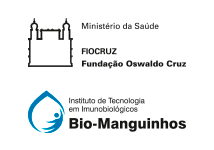
Bio-Manguinhos has an infrastructure that totals 64,800 m2 of built area on the Fiocruz headquarters campus, in Manguinhos, Rio de Janeiro. The unit counts on the Technological Vaccine Complex, where most of its industrial activities are concentrated. Additionally, the institution counts on facilities in the Rockefeller and the Henrique Aragão Pavillion, that add up to the Vinicius Fonseca Administrative Center.
- Technological Vaccine Complex
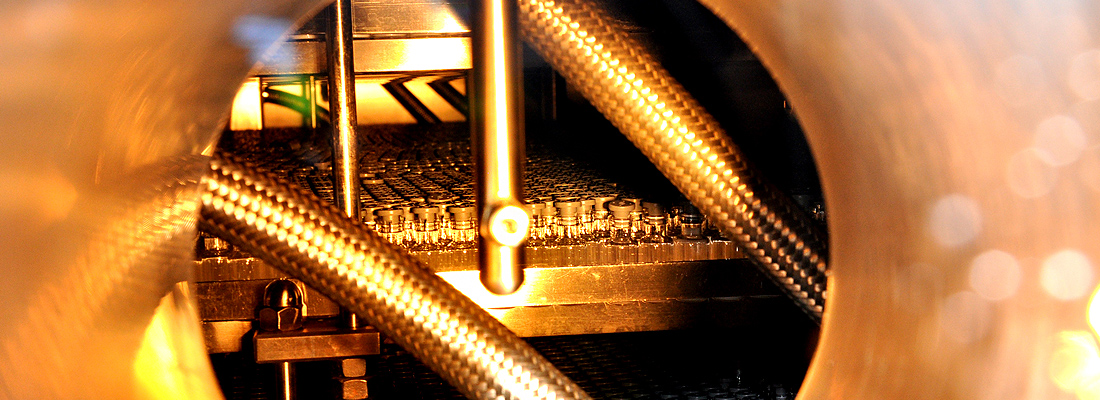
The Technological Vaccine Complex concentrates the large centers of production and fill&finish of vaccines, biopharmaceuticals and in vitro diagnostic kits, as well as areas of support for this production chain, such as quality control and assurance. Within the complex are the Production Centers for Bacterial and Viral Antigens (CPAB and CPAV); the Final Processing Center (CPFI); the facility dedicated to the rotavirus vaccine; the Physical-Chemical Laboratory, in addition to the Henrique Penna Center, where the IFA of the COVID-19 vaccine (recombinant) is produced.
CPAB is responsible for the industrial production of bacterial active pharmaceutical ingredients (API) and their intermediate products (polysaccharides and purified proteins) to produce bacterial vaccines.
The same is true for viral vaccines in CPAV.
At CPFI, activities are carried out for formulation, filling, crimping, reviewing, labeling and packaging of vaccines and biopharmaceuticals. It recently gained four new formulation areas: one for subunit vaccines, one for biopharmaceuticals and two for viral vaccines. The Center also counts on new areas for washing and assembling materials.
- Henrique Penna Center
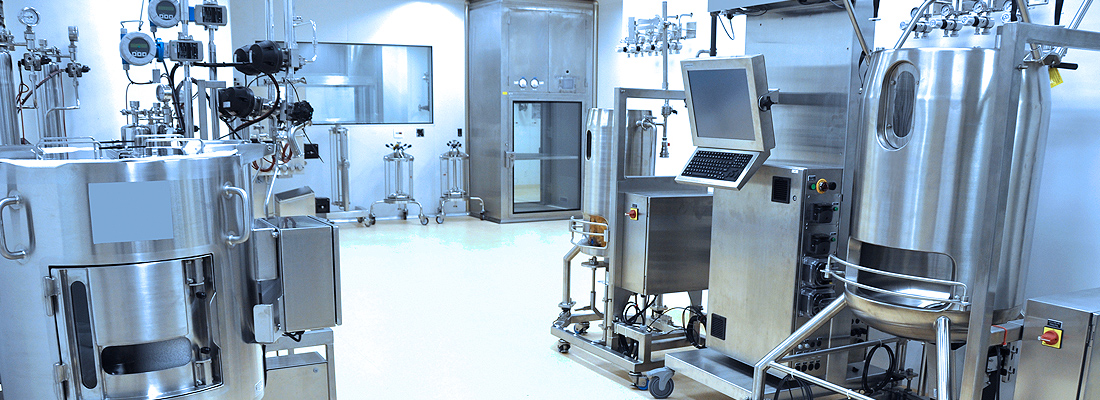
The Henrique Penna Center, located in the Institute's Technological Vaccine Complex, is one of the most advanced laboratory infrastructures in Brazil. The Center brings benefits not only to Bio-Manguinhos, but to public and private laboratories that, through partnerships, will be able to use the pilot plant to increase the scale of products developed on benches and manufacture batches for clinical studies, thus enabling the transition process from technological development to production.
The production of in vitro diagnostic kits takes place in dedicated areas, which guarantees large-scale production activity. To produce biopharmaceuticals, there is the Chinese hamster ovary (CHO) cells platform. In 2020, the building began to house production activities for the active pharmaceutical ingredient (IFA) of the COVID-19 vaccine (recombinant). Its production capacity will allow Bio-Manguinhos to diversify its portfolio and further strengthen the Brazilian Public Health System.
- Rockefeller Pavilion
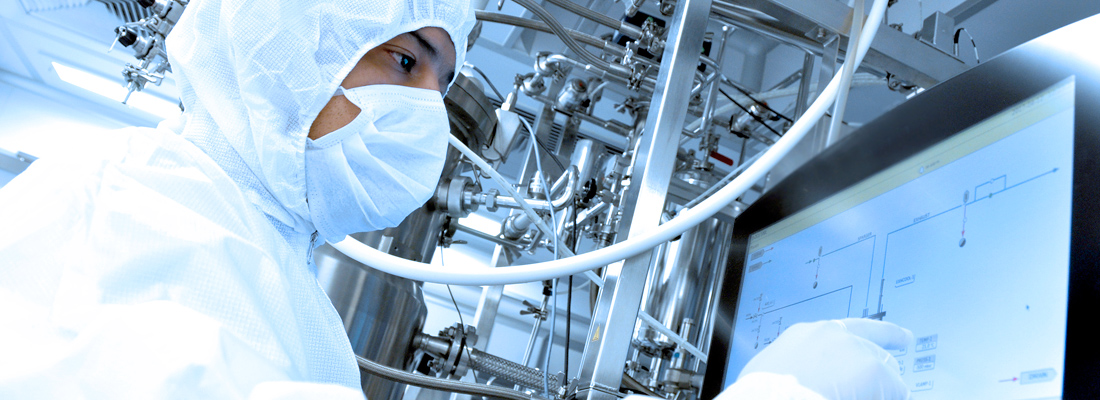
Opened in 1949, financed by the then magnate John Davison Rockefeller, the pavilion that bears his surname was built to manufacture the yellow fever vaccine. To fully adapt it to regulatory requirements and Good Manufacturing Practices, a major renovation was carried out in 2015 - as a listed building, the external structure was preserved.
In Rockefeller is one of the areas of the filling and bottling, where the Fill & Finishing of yellow fever and COVID-19 vaccines takes place. There are also Technological Development laboratories, such as the one for Bacterial Technology, Diagnostic Technology, Macromolecules and the one involved in the mRNA vaccine project for COVID-19, the Monoclonal Antibody Technology. Part of these laboratories is in the Rocha Lima Pavilion, next to the Rockefeller Pavilion, which also houses the Laboratory of Immunological Technology.
- Henrique Aragão Pavilion
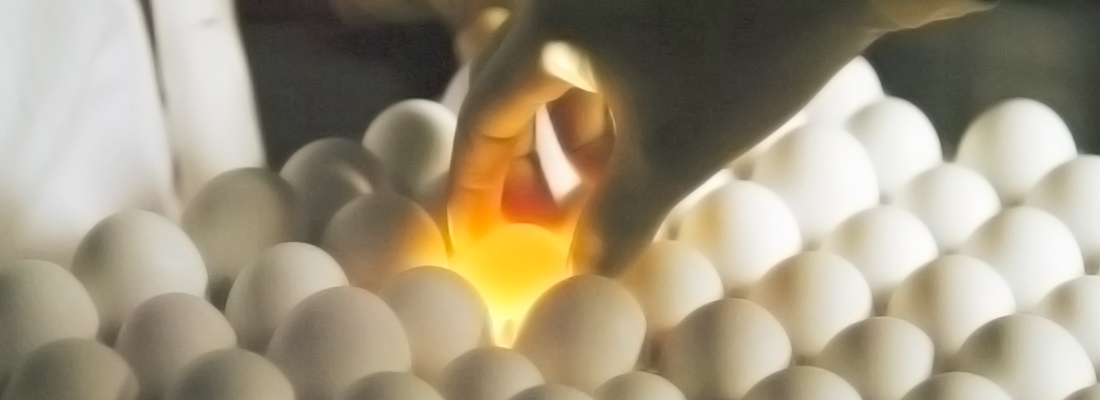
The Henrique Aragão Pavilion is a listed building by the State Institute of Cultural Heritage of the State of Rio de Janeiro (Inepac) and was inaugurated in 1960. It houses the Yellow Fever Laboratory (Lafam) of Bio-Manguinhos. There, the Active Pharmaceutical Ingredient (API), which is the viral concentrate that makes up the vaccine is produced.
- Vinicius Fonseca Administrative Center
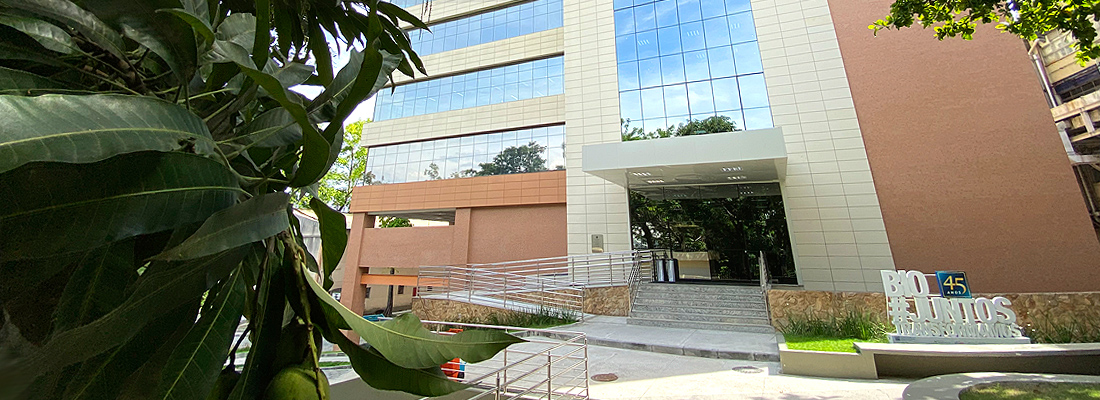
Opened in 2021, the new administrative and warehouse building honors the president of Fiocruz from 1975 to 1979, who spurred the creation of Bio-Manguinhos. The five-story, 10,430 m2 building brings together the unit's management areas, in addition to a modern warehouse with a total area of 3,408 m2, 2,770 pallet racks and four cold rooms.
The Center also has an auditorium with 278 seats and a foyer area, in addition to eight meeting rooms, three training rooms and an event hall.


